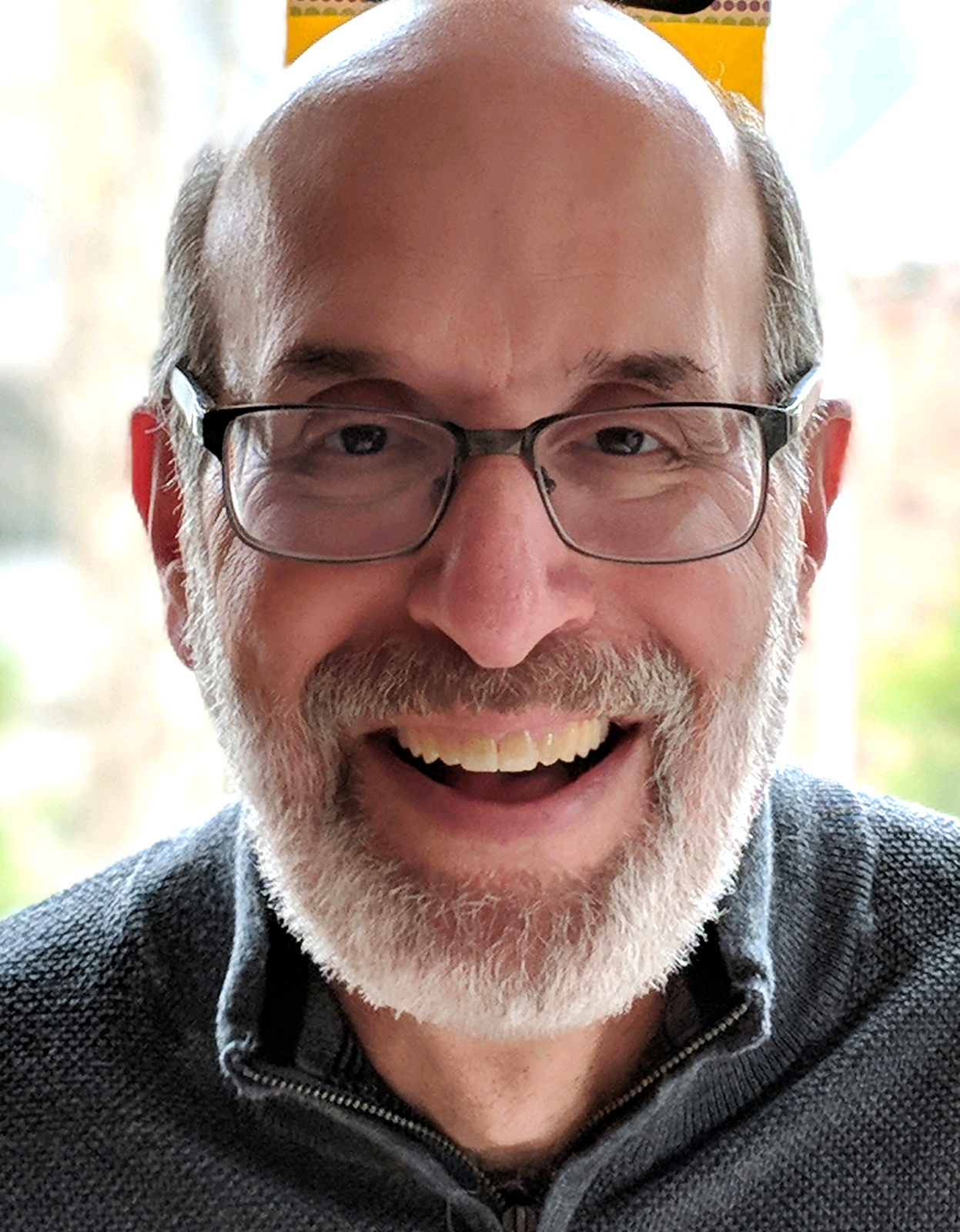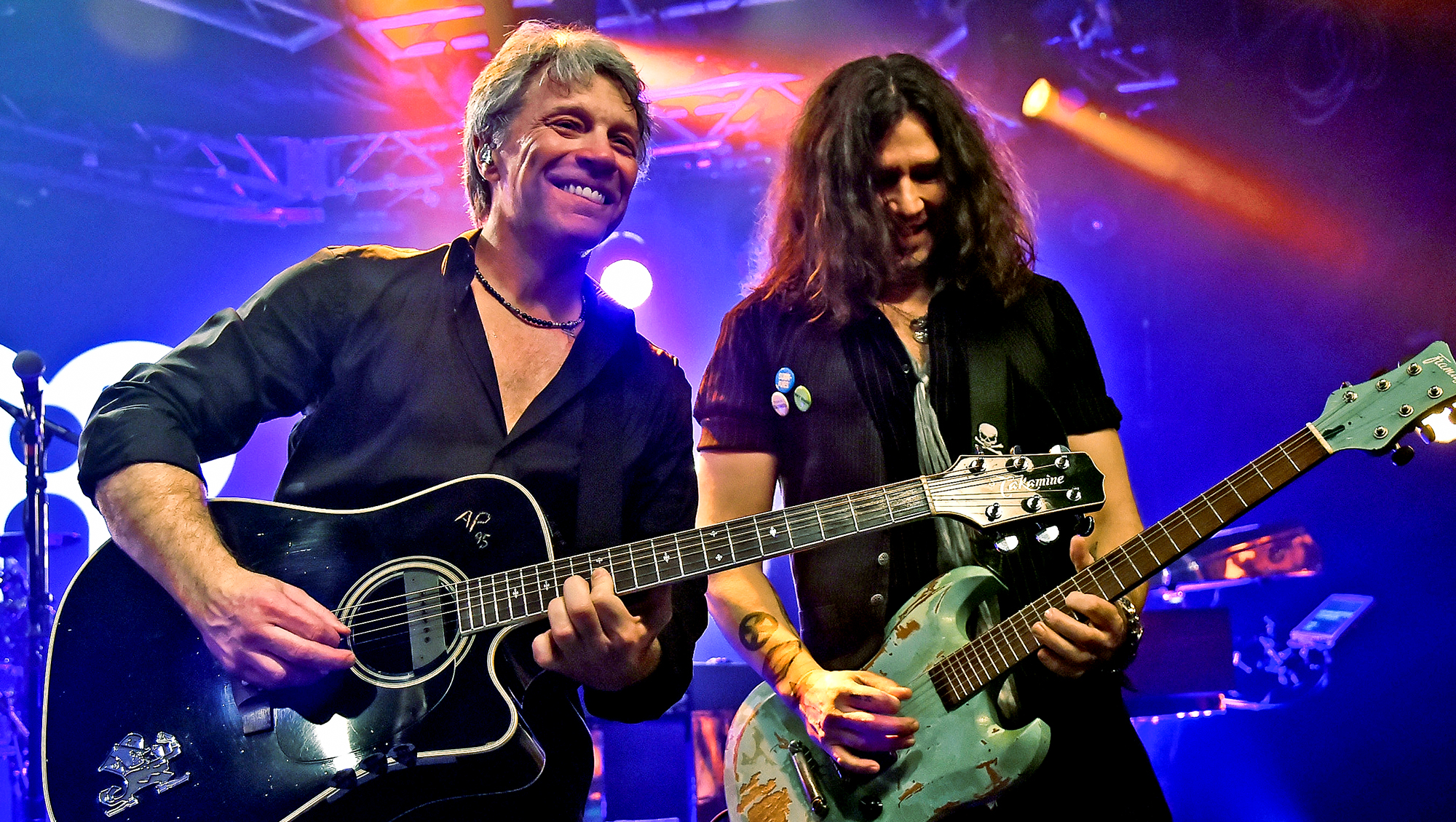“I came up with a lick, started putting the words together and called Ted Templeman at two in the morning”: The Doobie Brothers’ Tom Johnston recounts the stories behind five of the band's classic tunes
From Listen to the Music to Long Train Runnin’, China Grove and more, Johnston reveals the jams, studio wizardry – and political movements – that sparked some of the Doobies' biggest hits
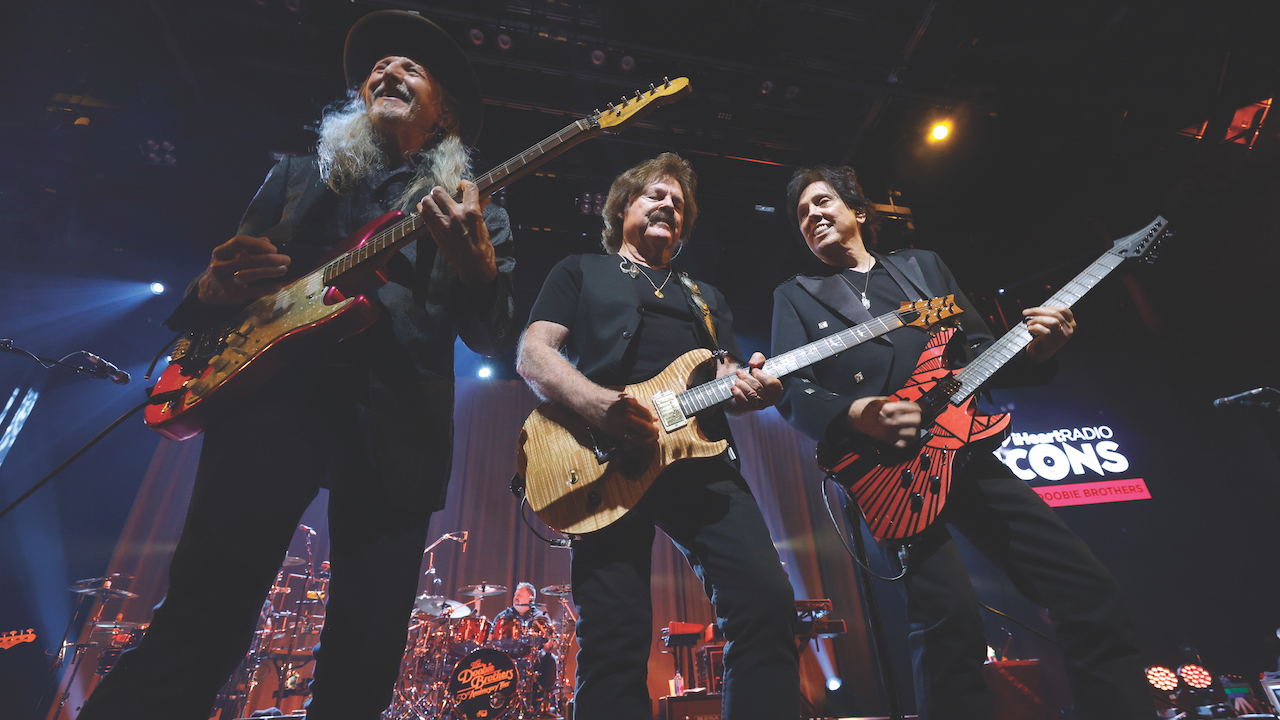
“We were a work in progress all the time,” Tom Johnston says, recalling the Doobie Brothers’ first era, from 1970 to 1977. The effort certainly paid off: You’d be hard-pressed to find a band with a more prolific and successful eight-year run than the Doobies had at that time.
Formed in Santa Cruz, California, the Doobies put four of their first six albums in the Top 10 of the Billboard 200, with two – 1973’s The Captain and Me and ’74’s What Were Once Vices Are Now Habits – selling double Platinum. Then there were the hits: Listen to the Music, Long Train Runnin’, China Grove, Takin’ It to the Streets, and many more, which accounts for the Diamond status of 1976’s Best of the Doobies.
Singer-guitarist Johnston was the primary songwriter during that time, though he and Patrick Simmons also forged one of the most potent and complementary six-string tandems of the 1970s.
“We had Pat’s fingerpicking, we had my rhythm, we had rock and roll,” he notes. “So we would venture into all three of those arenas and try stuff. It was a lot of fun.”
Johnston temporarily departed the Doobies in 1977, five years before the group broke up. He returned to the reformed band’s ranks in 1987 and helped lead its full-fledged reunion two years later. Since then, the Doobies have released six more studio albums and have another on the way this year. The band was inducted into the Rock and Roll Hall of Fame back in 2020, and Johnston and Simmons teamed up to write the 2022 memoir Long Train Runnin’: Our Story of the Doobie Brothers.
The long train hasn’t run out of steam, either; Johnston, Simmons, and John McFee were joined by Michael McDonald for a 50th anniversary tour that began during 2021, after a pandemic delay, and is still going, with McDonald also part of the new album.
As he prepared to hit the road for another summer, Johnston gave us the inside stories on these songs we’ve been listening to for a great many years – and probably will for many more to come.
All the latest guitar news, interviews, lessons, reviews, deals and more, direct to your inbox!
1. Listen to the Music – Toulouse Street
“This one came about in my bedroom in San Jose – early 1972 or maybe late 1971. I had a chord structure. That’s actually one of the few songs I just sat down and wrote and had everything, words and music, at the same time. Usually the music’s first and the words later. I came up with a lick and started putting the words together and called Ted [Templeman, producer]. Woke him up at two in the morning, or something like that, which he wasn’t really happy about. I played it for him over the phone and he said, ‘Yeah, maybe. Call me tomorrow.’ [laughs]
“So I did, and he said, ‘Let’s get it down here and see what we can do with it in the studio.’ I thought it was a single; it’s the only time in my life I’ve ever had that feeling. We hadn’t had one yet – at least not one that was successful, I should say. So we got down in the studio and we kept it pretty much the same as it was. The lyrics all stayed the same; the chords all stayed the same.
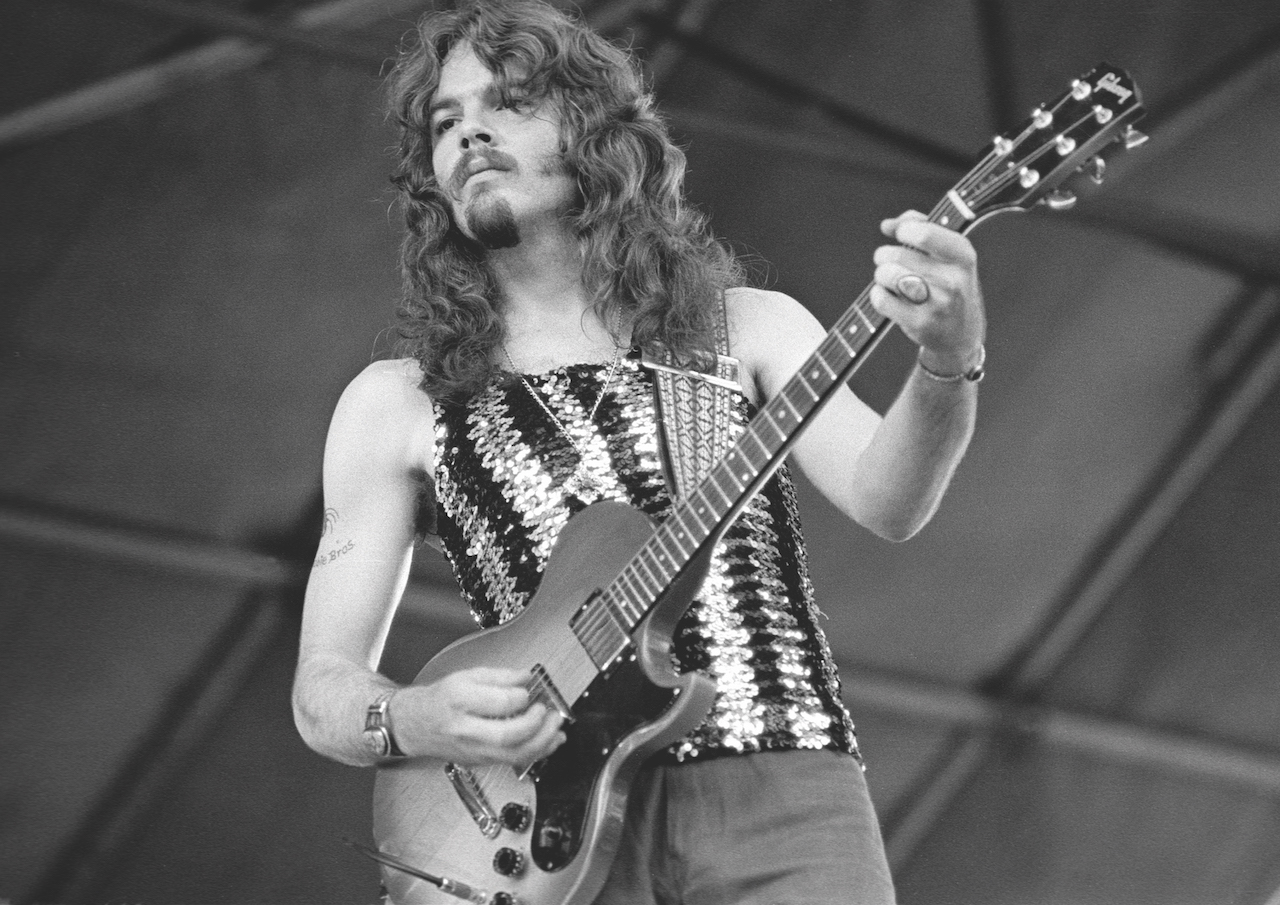
“This was during the Vietnam era, so I’m assuming that had something to do with the lyrics I came up with. I was still involved with San Jose State [University], and there were a lot of SDS riots over there. [Students for a Democratic Society led highly effective campus protests against the war.] I got drafted and had to go to two different draft centers, Fresno and Oakland, so I was familiar with everything and against the war and all that stuff, so it just filtered into the lyrics.
“I thought people would get along a lot better if they used music to communicate rather than political rhetoric. I was trying to give it a utopian view, I guess. I was listening to Alan Watts in school a lot. [Watts had a show on KPFA radio, where he shared his views on religion and philosophy.]
“When I got down to the studio, Ted and Donn Landee, the engineer, had ideas about miking the strings on the electric as well as miking the neck on both the acoustic and the electric, which for me was a Les Paul through a Fender Bandmaster, as I recall. That’s where all that rhythm sound came from, and it was the sound of that single and, yeah, our first hit.”
2. Rockin’ Down the Highway – Toulouse Street
“Rockin’ Down the Highway is about being on Highway 17, going between San Jose and Santa Cruz, and being up in the Santa Cruz mountains. It’s not specific in that sense, but it’s basically about having the top down and having a ball, being footloose and fancy free in that era.
“This was one of my early songs. I’d written the chorus probably before the band was even together. I’d been playing with a band in San Jose and came up with that chord structure. I think I developed the rest of the song after that with the Doobies in the studio while we were making Toulouse Street, our second album.
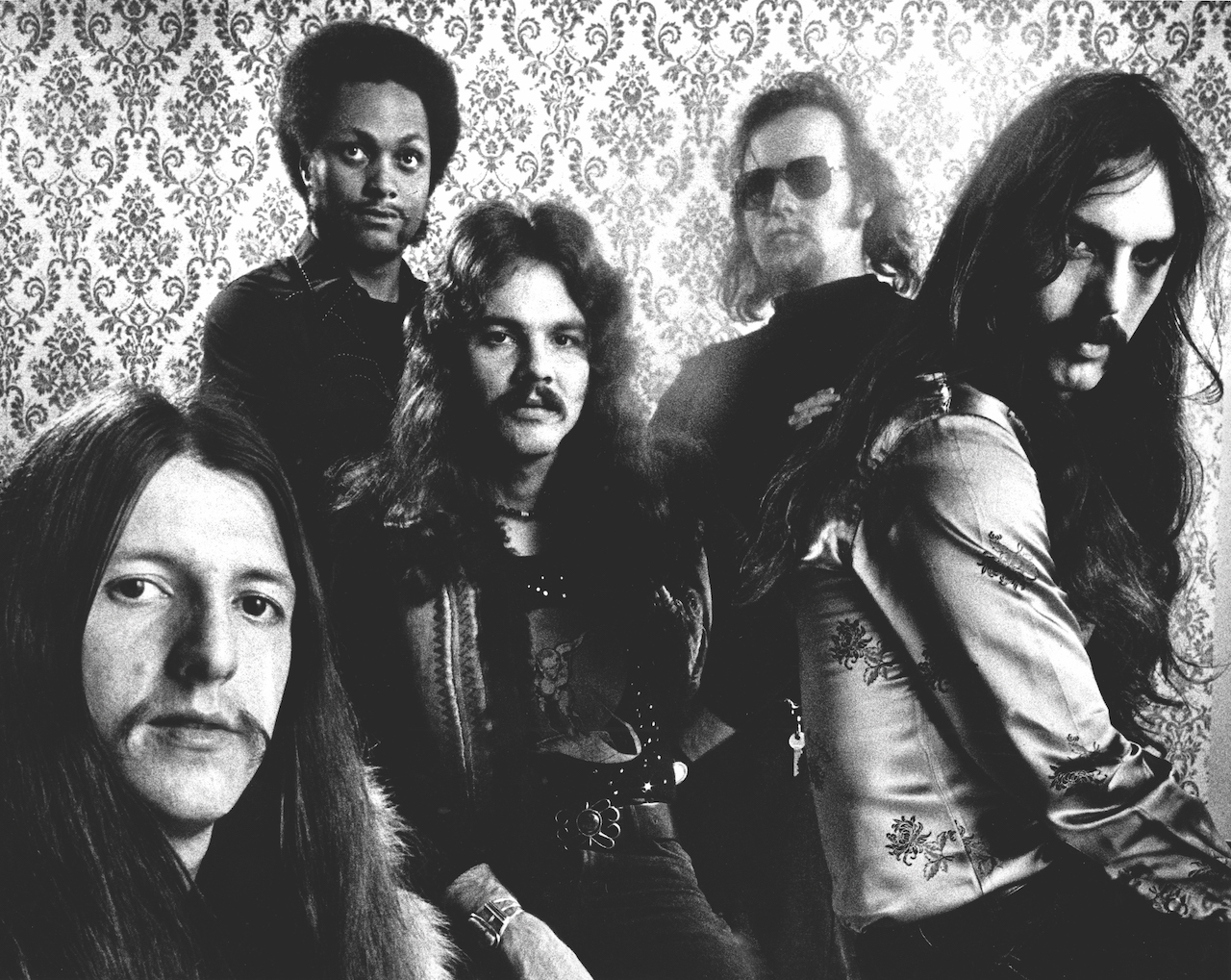
“Toulouse Street was made over two time periods. The first sessions weren’t that good, because we hadn’t started working with Ted Templeman yet. We had started recording songs up in San Francisco at Wally Heider’s [Wally Heider Studios], and we didn’t come up with anything that was really catchy. Warner Bros., our label, let us know that.
“We had a couple songs we thought were really good, but they said, ‘We’re gonna send a guy up there we think you should work with.’ In fact, we already knew Ted, because he was [producer] Lenny Waronker’s assistant on our first album.
“So we and Ted started working at Amigo Studios in North Hollywood, which became Warner Bros. Studio, and we started developing other songs, like Listen to the Music and Rockin’ Down the Highway. We laid this one down in the process of doing other tunes – probably Jesus Is Just Alright. All the songs we were doing were kind of chucked into the mix, and we just kept working on them until we got them down right. It’s not hard to figure out why Rockin’ Down the Highway caught on like it did. People loved that song, and it still goes over really well.”
3. Long Train Runnin’ – The Captain and Me
“We were playing this song back in 1970, long before we ever recorded it. It was just a jam. I think the line ‘Without love’ was the biggest hook, aside from the rhythm. Ted requested that we record it for The Captain and Me. I told him, ‘It doesn’t have any words. I just make ’em up every night.’ And he said, ‘Well... Write some, man!’ [laughs] I said, ‘Yeah, good point. But are you sure you want me to do this? 'Cause it’s really just a jam.’ And he said, ‘I think it could be great. Why don’t you write it about a train or something?’ It’s got that kind of feel, plus there’s the line about ‘Miss Lucy down along the tracks.’
“So I walked into another room at Amigo Studios – we were constantly working there for about four or five years – and I wrote the words for it, brought ’em back, and put ’em down. The song came to fruition like that. We came up with the harmonica part in the studio, too; I didn’t play that live because I had to play rhythm guitar, but we did it for the record. To my surprise, it ended up being a popular song. I really didn’t expect much out of it.”
4. China Grove – The Captain and Me
“This is one I wrote in the bedroom in San Jose. I just started playing that main lick on the acoustic guitar and thought, ‘This would be great on electric!’ So I went and grabbed [drummer] John [Hartman], who was in the bathroom – he had a room at the house as well – and said, ‘Hey, let’s go downstairs and do this.’ I still didn’t have the words when we cut the track in the studio. I probably wrote them there.
“Ted and Donn put the echo on the guitar, which was something new for us. As far as the instruments and the amps, they kind of remained the same for everything. I think it was an SG through a Bassman or Bandmaster.
“I don’t know if I was thinking in a ‘hit’ vein at that point or not. As I said before, the only song I ever felt was a single was Listen to the Music. Long Train Runnin' surprised me; China Grove surprised me; Rockin’ Down the Highway surprised me. Another Park, Another Sunday didn’t take off as a single for whatever reason, but its flip side, Black Water, took off. And that was a surprise, too.”
5. The Doctor – Cycles
“This was a comeback song for us after we regrouped. We had done some shows, some benefits and then some other concerts to pay for those, because we were a pretty large band back then. Ted said, ‘Why don’t you put the original band back together and do another album?’ and everybody said, ‘Well, sure.’
“[Singer/keyboardist] Mike [McDonald] was doing his solo thing and a couple of the other guys [guitarist John McFee and drummer Keith Knudsen] had Southern Pacific going on, but we had me, Pat, John Hartman, [second drummer] Michael Hossack, and Tiran Porter [who replaced founding bassist Dave Shogren in 1972], and that was pretty much the original band.
“I wrote The Doctor when I was playing with a band called Border Patrol. By the time I took it into the studio for what ended up being Cycles, our producers, Charlie Midnight and Eddie Schwartz, had gotten involved with the writing. The initial chord structure was the same as what I’d come up with, but we changed the chorus to what I felt was poppy sounding. It was not at all what I’d originally come up with, but if we’d done it my way it wouldn’t have sold like it did, so I give them credit for that. They also helped me with the lyrics. I wrote the verses and we wrote the choruses together.
“It’s a fun song, and I enjoyed doing it in the studio. We recorded it at the Plant, in Sausalito, where Fleetwood Mac recorded Rumours. A lot of other people did very successful albums there. It was just a fun place to work, and it suited us. Everybody felt good about the album. Next thing, we’re back on the road again, and we’ve never stopped.”
Gary Graff is an award-winning Detroit-based music journalist and author who writes for a variety of print, online and broadcast outlets. He has written and collaborated on books about Alice Cooper, Neil Young, Bob Seger, Bruce Springsteen and Rock 'n' Roll Myths. He's also the founding editor of the award-winning MusicHound Essential Album Guide series and of the new 501 Essential Albums series. Graff is also a co-founder and co-producer of the annual Detroit Music Awards.





